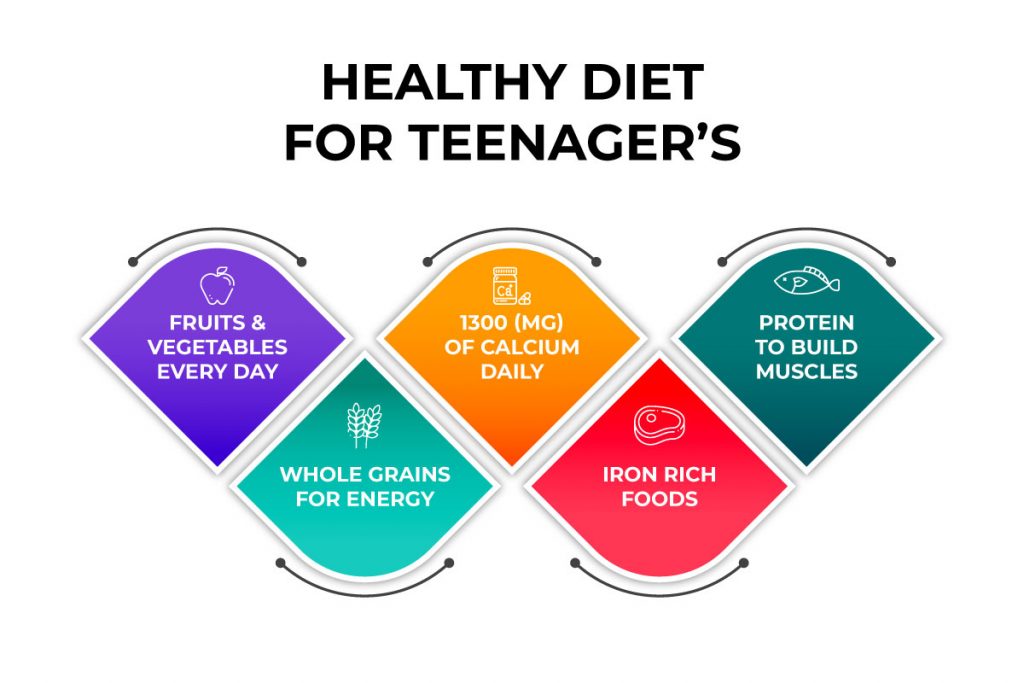
Essential Nutrients for Teenagers: A Comprehensive Guide
Share
Adolescence is a pivotal period marked by rapid growth and development, necessitating a balanced intake of essential nutrients to support physical, cognitive, and emotional well-being. This guide delves into the critical nutrients required during the teenage years, backed by scientific research and expert recommendations.
🥛 Calcium & Vitamin D: Building Strong Bones
During adolescence, bones grow rapidly, making calcium and vitamin D vital for achieving peak bone mass. Insufficient intake can lead to weaker bones and increased risk of fractures.
-
Calcium: Essential for bone and teeth development. Recommended intake for teens is about 1,300 mg/day.
-
Vitamin D: Facilitates calcium absorption and bone growth. Teens should aim for 600 IU/day.
Sources: Dairy products, fortified plant-based milks, leafy greens, and exposure to sunlight.
🍖 Iron: Supporting Growth and Preventing Anemia
Iron is crucial for transporting oxygen in the blood and supporting muscle metabolism. Teen girls, especially those who menstruate, are at higher risk of iron deficiency.
-
Recommended Intake: Boys: 11 mg/day; Girls: 15 mg/day.
Sources: Lean meats, beans, fortified cereals, and spinach.
🥩 Protein: Building Blocks of the Body
Protein supports the development of muscles, organs, and the immune system.
-
Recommended Intake: Approximately 46-52 grams/day for teens.
Sources: Meat, poultry, fish, eggs, dairy, legumes, and nuts.
🥦 Zinc & Folate: Supporting Development
-
Zinc: Essential for immune function and cell growth.
-
Folate (Vitamin B9): Important for DNA synthesis and cell division.
Sources: Whole grains, legumes, nuts, seeds, and leafy greens.
🥕 Vitamins A & C: Enhancing Immunity and Vision
-
Vitamin A: Supports vision, immune function, and cell growth.
-
Vitamin C: Important for skin health, wound healing, and immune defense.
Sources: Carrots, sweet potatoes, citrus fruits, and berries.
💧 Hydration: The Overlooked Essential
Adequate water intake is crucial for maintaining energy levels and supporting bodily functions.
-
Recommended Intake: Teens should aim for 8-10 cups of water daily.
Tip: Encourage water over sugary drinks to promote better health.
🧠 Conclusion: Building Healthy Habits
Ensuring that teenagers receive adequate nutrition is fundamental for their growth, development, and long-term health. Incorporating a variety of nutrient-rich foods into daily meals can help meet these needs. Parents and caregivers play a pivotal role in guiding teens toward healthy eating habits that can last a lifetime.
